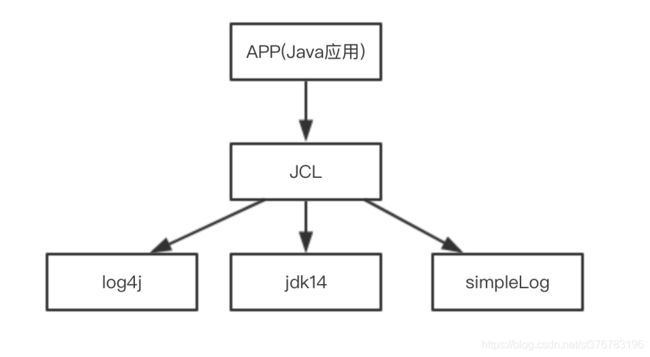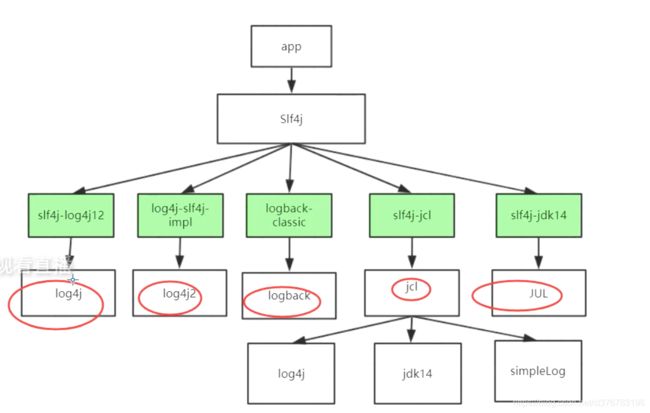- 从零开始的ros踩坑之路 (1)
arxhsyd123
ubuntu
要做毕设了,之前的机器人用的只是最基础的ardunio,跟真正的内行还是差的很远,这次决定使用ros系统来做一些更有挑战性的事情。首先第一步就是要安装啦,先是要安装ubuntu,我安装的版本是20.04LTS,本人linux纯小白,只是听同学说这个版本还行,我一开始买了2核4G的腾讯云服务器,准备在云服务器上进行操作,刚开始一切还都好,结果在安装ros的最后一步死活卡住了,小乌龟显示不出来!说是q
- 详细记录前端项目使用import懒加载组件打包失败的踩坑之路
YorcentLuo
前端技能前端部署前端webpackvue.js前端框架
前言:有些问题真的很玄学,但是出现了你又不得不去解决,哪怕解决完了你还是一脸懵逼,但是解决一次也算累积了一次经验了。这篇笔记是基于之前的一篇笔记的补充加强版:所以看下去之前建议先移步之前那篇笔记:关于vue动态引入(异步加载import和require)组件的方法和坑(按需懒加载组件,动态生成路由)babel-plugin-dynamic-import-node优化编译速度由于前几天又遇到一个神坑
- MacM1Pro安装ftp
咖啡不苦么
macos
MacM1Pro安装ftp本篇文章前提是需要自己电脑上安装了brew才可以哦。由于项目需要,需要在本地安装ftp。打开命令行后发现没有这个命令。于是进行安装踩坑之路。以此记录zsh:commandnotfound:ftp报错。于是查询用brew安装ftp。即执行下面命令brewinstallinetutils但是发现报错了原因是libunistring这个包没有下载下来,此时,我们手动下载这个包,
- taro-vue2.x跨端开发之swiper(二)
皮蛋灬
vue.js小程序经验分享
持续taro-vue框架的踩坑之路,今天说一下taro---swiper内置组件的小问题吧,首先看一下文档:(官方文档看起来有点不舒服,手动整理一下)参数类型默认值必填说明indicatorDotsbooleanfalse否是否显示面板指示点indicatorColorstring"rgba(0,0,0,.3)"否指示点颜色indicatorActiveColorstring"#000000"否当
- SpringDataJPA 入门
程序员DD
Javajavaspringsql
很长时间没有用过JAP,也是类似于MyBaits底层的一种持久层框架,后面发现网上的博客中对于JPA的使用规范介绍的都不一样,现在自己将自己对JPA的认识总结一下,为了避免后续的踩坑之路继续下去,在使用JPA的,过程中,导报和引入对应的额实体类和对应的XML就不简单的过多的去叙述太多了,都是一些繁文缛节的东西只要按照文档进行简单操作就可以了。下面就是快速的简单的介绍一些JAP的历史和相关的详情信息
- Android公共标题栏兼容DataBinding踩坑之路
hellokugo
说在前面GoogleArch框架推行已经有一段时间了,之前一直没有勇气去尝鲜,因为稳定上线的app很难换框架重构。俗话说得好,重构不如推倒重做(我说的),公司刚好启动一个新项目,部门内部决定搭建包含LiveData,ViewModel和LifeCycle的MVVM框架来搞。万事开头难,踩坑路漫漫,本篇主要介绍如何结合DataBinding兼容公共标题栏的开发。简单介绍一下俗话说,站在巨人肩上开发,
- 阿里云ECS服务器配置Nginx支持IPv6
sourny
linux操作杂项阿里云nginxipv6appstore
AppStore因为公司的APP与需要上AppStore,但是AppStore要求必须支持IPV6所以没办法服务器也要支持IPV6下面就是踩坑之路根据阿里帮助中心的文档配置ECSIPv6隧道地址开始修改服务器IPV6相关配置开启IPV6:vim/etc/sysctl.confvim/etc/modprobe.d/disable_ipv6.confvim/etc/sysconfig/network添
- clickhouse(十二、踩坑之路)
yyoc97
大数据clickhouseclickhouse异常
Q1DB::Exception:Cannotcreatetablefrommetadatafile/data/clickhouse/metadata/default/dwd_test.sql,error:DB::Exception:Thelocalsetofpartsoftabledefault.dwd_testdoesn’tlooklikethesetofpartsinZooKeeper:65.
- Docker + Jenkins + Git + Pytest + Allure 自动化测试之持续集成收官
python撸码的阿帅
pythonpython
前言:Docker+Jenkins+Git+Pytest+Allure自动化测试之持续集成收官过程:后续有机会了,给大家分享其中的踩坑之路结果:已完成UI自动化与API接口自动化的搭建,可以通过报告路径访问allure或者邮件链接、手机直接访问allure报告网页,有问题的小伙伴可以私信共同探讨,共同进步
- MyBatis开发踩坑之路1
zorkelvll
imageZERO持续更新请关注:https://zorkelvll.cn/blogs/zorkelvll/articles/2018/11/15/1542213094869背景本文主要是介绍在开发过程中,使用mybatis所遇到的坑,仅供自己记录查询以及各位猿友借鉴!场景3:mybatis-xml动态查询条件中实现ifelse的效果SQL写法ANDa.s_info_windcode=#{sInf
- 使用Next.js(React)作为Nest.js的模板引擎的踩坑之路
萌新丶小熊
框架增强reactnestjs
本人平时做项目一般都基于Nest.js+React的前后端分离,之所以用这两个框架,Nest.js的好处:写法类似Java的Spring,对TypeScript的支持非常好,一方面可以一定程度规范代码,另一方面代码提示很友好,结合Typeorm,用起来很顺手,维护起来也比较方便;React的好处,对TypeScript支持非常好,antd等大厂做的组件库很多都是针对React的,做项目开箱即用又不
- 让人回味的Java踩坑之路
helloxielan
陆陆续续学Java也快一年多了,从开始的一窍不通到现在的初窥门径,我努力过,迷茫过,痛过,乐过,反思过,沉淀过。趁着新年,我希望能把这些东西记下来,就当是我一路走来的脚印。一、初识网站应用记得第一次接触Java,是写一个小网站,当时用servlet+tomcat做服务端,数据库是mysql。那时我对于网站应用的概念一片空白,之前接触的都是C++和MFC写桌面程序。我花了一周时间看完了《javase
- win10安装kafka遇到的坑
枕边书thinking
消息中间件kafka
win10安装kafka遇到的坑安装kafka的目录层级不要太深,目录名不要太长,否则可能在启动zk或者kafka会报命令行太长,命令语法不正确。安装版本最好是kafka_x.xx-3.0.0以下,不包含3.0,否则可能启动会报文件权限访问异常的错误,应该是bug。在执行删除topic时候,只是标记删除,并不是真正删除。本人针对删除topic,仅记录踩坑之路。本人kafka版本kafka_2.12
- Swift原生项目中集成RN的踩坑笔记
QL_ProCareer
ReacteNativeRNSwiftiOS
学习ReateNative的踩坑之路搭建环境官方环境搭建地址、官方原生集成地址本人环境:mac10.15.4、Xcode11.4、brew:2.2.16、Pods:1.9.1、npm:6.14.4、react-native:0.62.2这里环境搭建就不多说了,官网跟着走就是了(注意官方给出的文档中黄色区域非常重要,仔细阅读)。巨坑:Podfile配置官方给的Podfile配置是过时了的,反正我是一
- Android - 编译 openssl 踩坑之路
GitLqr
Android音视频NDK和jniAndroid笔记androidopensslndkwebrtcc++
一、简述如果你想快速在项目中使用上openssl,可以使用网上其他开发者提供好的预编译库:OpenSSL(All):https://builds.viaduck.org/prebuilts/openssl/OpenSSL(3.1.*):https://github.com/217heidai/openssl_for_android以上的预编译库可能最低只支持API21(即Android5),如果你
- Solid Works安装踩坑之路
too_vegetable
开源软件
SolidWorks安装为了写专利还得下一个solidworks,痛,太痛了,继续踩雷参考SolidWorks2016中文破解版附安装教程Solidworks版本是Solidworks2016sp4.0系统是windows10,64位安装提示windows缺少补丁原因分析:win10的补丁没安完整:解决方案:在浏览器上搜索windows10kb3074683并下载链接是kb3074683下载好之后
- 踩坑之路:LiveData之粘性事件
锐湃
jetpack程序设计
前言何为粘性事件?即发射的事件如果早于注册,那么注册之后依然可以接收到的事件称为粘性事件背景最近接手了一个公司的项目,采用了目前比较新的技术:LiveData+ViewModel的事件通知框架。该框架拥有大量的优点包括但不仅限于以下:1.实时感知生命周期。2.无需手动回收,解绑,即不会出现内存泄漏的情况。3.数据变化可进行实时通知等等......本人对于这个框架也只是一知半解,奈何项目比较紧急,接
- OpenStack踩坑之路(3)
运维开发故事
虚拟化云计算运维服务器
微信公众号:运维开发故事,作者:wangerOpenStack计算服务搭建nova服务概述使用OpenStackCompute来托管和管理云计算系统。OpenStackCompute是基础架构即服务(IaaS)系统的重要组成部分。主要模块是用Python实现的。OpenStackCompute与OpenStackIdentity进行交互以进行身份验证;用于磁盘和服务器映像的OpenStack映像服
- vue踩坑之路did you register the component correctly? For recursive components
sunshine08_07
vue.jsjavascript前端
在用vue的时候出现了上面的问题有两个原因:1、查找组件引用后是否在components中正确注册2、递归组件同时又掉用了相同的组件。解决办法components:{'FileDetail':FileDetail,},相同的组件在引用的时候取不同的名字,这时候就不要简写了。如果以上办法都尝试后还不行,则可将import引入改为components内部引入:'FileDetails':()=>imp
- nginx 1.6.1 离线平滑升级至 nginx 1.24.0
青凯平
linuxnginx运维服务器
前言:生产环境中遇到的问题,需要升级nginx版本,编译nginx时需要加上pcre和openssl参数,随即开始了踩坑之路,开源至上,开启正文。make编译nginx报错:/bin/sh:line2:./config:Nosuchfileordirectorymake[1]:***[/usr/local/openssl//.openssl/include/openssl/ssl.h]Error1
- JavaCV踩坑之路1——Mac上安装OpenCV
断墨先生
问题管理macosopencvjavacv
Mac无法安装opencv更新Homebrew:打开终端并运行以下命令来更新Homebrew:brewupdate移除Taps(仓库):可能与homebrew-services仓库有关。你可以尝试将它移除:brewuntaphomebrew/services重新安装OpenCV:在移除了仓库后,再次尝试安装OpenCV:brewinstallopencv
- day2
EEEEsun
记录一下踩坑之路Git克隆错误RPCfailed;curl56Recvfailure:Connectionwasreset.’及克隆速度慢问题解决node_modules\node-sass:Commandfailed.问题解决小程序初体验数据绑定类似于vue的数据绑定形式,mustache语法在对应的js文件(逻辑层)声明数据data:{name:'Coderwhy',age:18,},在wxm
- Vue相关踩坑之路
wangdianshui
vuevue.jsjavascript前端
1.v-if与v-show区别一般来说,v-if有更高的切换开销,而v-show有更高的初始渲染开销。因此,如果需要非常频繁地切换,则使用v-show较好;如果在运行时条件很少改变,则使用v-if较好。2.v-if与v-for区别在vue3.x中,v-if的优先级大于v-for,这意味着v-if将没有权限访问v-for里的变量。这将抛出一个错误,因为v-if指令将首先被使用,而迭代的变量user此
- 踩坑之路:LiveData之粘性事件
CDF_cc7d
前言何为粘性事件?即发射的事件如果早于注册,那么注册之后依然可以接收到的事件称为粘性事件背景最近接手了一个公司的项目,采用了目前比较新的技术:LiveData+ViewModel的事件通知框架。该框架拥有大量的优点包括但不仅限于以下:1.实时感知生命周期。2.无需手动回收,解绑,即不会出现内存泄漏的情况。3.数据变化可进行实时通知等等......本人对于这个框架也只是一知半解,奈何项目比较紧急,接
- Android阿里云推送离线通知集成踩坑之路
淡淡的香烟
开发实例androidsqlite微信
最近因为公司后台服务器买的是阿里云的服务,所以把友盟的推送换成了阿里云推送,首先不得不说,文档写得很差,兼容性和适配做得也不是很好,加了技术支持群,但是里面的同学问一个问题半天才有回复,好了,不扯谈,直接上代码。1.添加依赖:由于公司项目是组件化开发,所以我把推送也单独做成了一个组件,可以独立运行.在项目的统一依赖管理config.gradle添加阿里云推送的依赖和各第三方渠道的依赖,如下图所示:
- Android音视频之FFmpeg踩坑之路
音视频开发老马
ffmpeg音视频
导读:由于业务那边有个合成视频的需求,想做成把图片和视频混在一起带转场和bgm然后合成导出的功能,就去研究了一下音视频方面的技术,发现Android原生没有满足需求的技术,于是去学习FFmpeg的使用,总共用了大概两个星期的时间,中间遇到各种问题,好在最后都想到了解决方案,在这里记录下学习的过程,避免各位踩同样的坑本文含以下内容:1.FFmpeg常用命令2.视频合成及转场的设计思路以及性能优化3.
- jspdf 打印多页时两边取消留白_html2canvas+jspdf 踩坑之路
当下的幸福
jspdf打印多页时两边取消留白
html2canvas+jspdf踩坑之路最近刚完成了项目中所有模块的详情页导出PDF功能.本来开始后端接了这个活,前端只要传过去单号就好,可是做到最后一直实现不来,页面总是显示一半,于是,后端把活让给了我还好,同组的其他伙伴项目中有用到过,给了我些帮助.具体实现思路是:html2canvas截屏页面快照,然后把照片插入到PDF页面内.遇到的问题有:1)快照是空白的首先页面DOM布局很重要,如果布
- PyQt5踩坑篇
andy yang ^.^( O2)
pythonpyqt5
PyQt5系列教程(一)目录PyQt5系列教程(一)前言软硬件环境:一、安装PyQt5二、配置PyCharm1.添加QtDesigner2.添加Pyuic3.添加PYrcc三、PyQt5简单入门案例总结前言主要记录PyQt的踩坑之路,本文主要介绍利用工具QtDesigner来完成UI界面的设技软硬件环境:windows1064bitMinicondawithPython3.7.1PyQt5PyCh
- webpack踩坑之路之mini-css-extract-plugin
前端小嘟
webpackwebpack
mini-css-extract-plugin插件坑挺多记录一下版本兼容坑typescriptNomodulefactoryavailablefordependencytype:CssDependency查看个人的webpack的版本如果版本在v5以上需要使用mini-css-extract-plugin0.8.2版本0.8.2版本较为稳定。2.需配合plugin部分一起使用{plugins:[n
- 实习踩坑之路:一个诡异的SQL?PageHelper莫名多了一个Limit子句,导致SQL执行错误?
会写代码的花城
实习踩坑之路数据库MySQL并发sql数据库PageHelperSQL莫名多了一个LimIt线程串扰
问题复现昨天晚上上线,业务上回归测试都很正常,但是就在那时,突然爆了一个SQL执行异常,告警群中看到这个SQL是这样的这怎么有两个Limit拼在一起了?是我SQL写错了么?然后我第一反应就是这个SQL写错了,但是我定位了这个Mapper文件,发现并没有这一条SQL是拼了两个limit语句的,然后在师兄提醒的情况下,认为是上个线程的(分页插件拼接的)ThreadLocal变量没有被清除,也就是说,有
- 基本数据类型和引用类型的初始值
3213213333332132
java基础
package com.array;
/**
* @Description 测试初始值
* @author FuJianyong
* 2015-1-22上午10:31:53
*/
public class ArrayTest {
ArrayTest at;
String str;
byte bt;
short s;
int i;
long
- 摘抄笔记--《编写高质量代码:改善Java程序的151个建议》
白糖_
高质量代码
记得3年前刚到公司,同桌同事见我无事可做就借我看《编写高质量代码:改善Java程序的151个建议》这本书,当时看了几页没上心就没研究了。到上个月在公司偶然看到,于是乎又找来看看,我的天,真是非常多的干货,对于我这种静不下心的人真是帮助莫大呀。
看完整本书,也记了不少笔记
- 【备忘】Django 常用命令及最佳实践
dongwei_6688
django
注意:本文基于 Django 1.8.2 版本
生成数据库迁移脚本(python 脚本)
python manage.py makemigrations polls
说明:polls 是你的应用名字,运行该命令时需要根据你的应用名字进行调整
查看该次迁移需要执行的 SQL 语句(只查看语句,并不应用到数据库上):
python manage.p
- 阶乘算法之一N! 末尾有多少个零
周凡杨
java算法阶乘面试效率
&n
- spring注入servlet
g21121
Spring注入
传统的配置方法是无法将bean或属性直接注入到servlet中的,配置代理servlet亦比较麻烦,这里其实有比较简单的方法,其实就是在servlet的init()方法中加入要注入的内容:
ServletContext application = getServletContext();
WebApplicationContext wac = WebApplicationContextUtil
- Jenkins 命令行操作说明文档
510888780
centos
假设Jenkins的URL为http://22.11.140.38:9080/jenkins/
基本的格式为
java
基本的格式为
java -jar jenkins-cli.jar [-s JENKINS_URL] command [options][args]
下面具体介绍各个命令的作用及基本使用方法
1. &nb
- UnicodeBlock检测中文用法
布衣凌宇
UnicodeBlock
/** * 判断输入的是汉字 */ public static boolean isChinese(char c) { Character.UnicodeBlock ub = Character.UnicodeBlock.of(c);
- java下实现调用oracle的存储过程和函数
aijuans
javaorale
1.创建表:STOCK_PRICES
2.插入测试数据:
3.建立一个返回游标:
PKG_PUB_UTILS
4.创建和存储过程:P_GET_PRICE
5.创建函数:
6.JAVA调用存储过程返回结果集
JDBCoracle10G_INVO
- Velocity Toolbox
antlove
模板toolboxvelocity
velocity.VelocityUtil
package velocity;
import org.apache.velocity.Template;
import org.apache.velocity.app.Velocity;
import org.apache.velocity.app.VelocityEngine;
import org.apache.velocity.c
- JAVA正则表达式匹配基础
百合不是茶
java正则表达式的匹配
正则表达式;提高程序的性能,简化代码,提高代码的可读性,简化对字符串的操作
正则表达式的用途;
字符串的匹配
字符串的分割
字符串的查找
字符串的替换
正则表达式的验证语法
[a] //[]表示这个字符只出现一次 ,[a] 表示a只出现一
- 是否使用EL表达式的配置
bijian1013
jspweb.xmlELEasyTemplate
今天在开发过程中发现一个细节问题,由于前端采用EasyTemplate模板方法实现数据展示,但老是不能正常显示出来。后来发现竟是EL将我的EasyTemplate的${...}解释执行了,导致我的模板不能正常展示后台数据。
网
- 精通Oracle10编程SQL(1-3)PLSQL基础
bijian1013
oracle数据库plsql
--只包含执行部分的PL/SQL块
--set serveroutput off
begin
dbms_output.put_line('Hello,everyone!');
end;
select * from emp;
--包含定义部分和执行部分的PL/SQL块
declare
v_ename varchar2(5);
begin
select
- 【Nginx三】Nginx作为反向代理服务器
bit1129
nginx
Nginx一个常用的功能是作为代理服务器。代理服务器通常完成如下的功能:
接受客户端请求
将请求转发给被代理的服务器
从被代理的服务器获得响应结果
把响应结果返回给客户端
实例
本文把Nginx配置成一个简单的代理服务器
对于静态的html和图片,直接从Nginx获取
对于动态的页面,例如JSP或者Servlet,Nginx则将请求转发给Res
- Plugin execution not covered by lifecycle configuration: org.apache.maven.plugin
blackproof
maven报错
转:http://stackoverflow.com/questions/6352208/how-to-solve-plugin-execution-not-covered-by-lifecycle-configuration-for-sprin
maven报错:
Plugin execution not covered by lifecycle configuration:
- 发布docker程序到marathon
ronin47
docker 发布应用
1 发布docker程序到marathon 1.1 搭建私有docker registry 1.1.1 安装docker regisry
docker pull docker-registry
docker run -t -p 5000:5000 docker-registry
下载docker镜像并发布到私有registry
docker pull consol/tomcat-8.0
- java-57-用两个栈实现队列&&用两个队列实现一个栈
bylijinnan
java
import java.util.ArrayList;
import java.util.List;
import java.util.Stack;
/*
* Q 57 用两个栈实现队列
*/
public class QueueImplementByTwoStacks {
private Stack<Integer> stack1;
pr
- Nginx配置性能优化
cfyme
nginx
转载地址:http://blog.csdn.net/xifeijian/article/details/20956605
大多数的Nginx安装指南告诉你如下基础知识——通过apt-get安装,修改这里或那里的几行配置,好了,你已经有了一个Web服务器了。而且,在大多数情况下,一个常规安装的nginx对你的网站来说已经能很好地工作了。然而,如果你真的想挤压出Nginx的性能,你必
- [JAVA图形图像]JAVA体系需要稳扎稳打,逐步推进图像图形处理技术
comsci
java
对图形图像进行精确处理,需要大量的数学工具,即使是从底层硬件模拟层开始设计,也离不开大量的数学工具包,因为我认为,JAVA语言体系在图形图像处理模块上面的研发工作,需要从开发一些基础的,类似实时数学函数构造器和解析器的软件包入手,而不是急于利用第三方代码工具来实现一个不严格的图形图像处理软件......
&nb
- MonkeyRunner的使用
dai_lm
androidMonkeyRunner
要使用MonkeyRunner,就要学习使用Python,哎
先抄一段官方doc里的代码
作用是启动一个程序(应该是启动程序默认的Activity),然后按MENU键,并截屏
# Imports the monkeyrunner modules used by this program
from com.android.monkeyrunner import MonkeyRun
- Hadoop-- 海量文件的分布式计算处理方案
datamachine
mapreducehadoop分布式计算
csdn的一个关于hadoop的分布式处理方案,存档。
原帖:http://blog.csdn.net/calvinxiu/article/details/1506112。
Hadoop 是Google MapReduce的一个Java实现。MapReduce是一种简化的分布式编程模式,让程序自动分布到一个由普通机器组成的超大集群上并发执行。就如同ja
- 以資料庫驗證登入
dcj3sjt126com
yii
以資料庫驗證登入
由於 Yii 內定的原始框架程式, 採用綁定在UserIdentity.php 的 demo 與 admin 帳號密碼: public function authenticate() { $users=array( &nbs
- github做webhooks:[2]php版本自动触发更新
dcj3sjt126com
githubgitwebhooks
上次已经说过了如何在github控制面板做查看url的返回信息了。这次就到了直接贴钩子代码的时候了。
工具/原料
git
github
方法/步骤
在github的setting里面的webhooks里把我们的url地址填进去。
钩子更新的代码如下: error_reportin
- Eos开发常用表达式
蕃薯耀
Eos开发Eos入门Eos开发常用表达式
Eos开发常用表达式
>>>>>>>>>>>>>>>>>>>>>>>>>>>>>>>>>>>
蕃薯耀 2014年8月18日 15:03:35 星期一
&
- SpringSecurity3.X--SpEL 表达式
hanqunfeng
SpringSecurity
使用 Spring 表达式语言配置访问控制,要实现这一功能的直接方式是在<http>配置元素上添加 use-expressions 属性:
<http auto-config="true" use-expressions="true">
这样就会在投票器中自动增加一个投票器:org.springframework
- Redis vs Memcache
IXHONG
redis
1. Redis中,并不是所有的数据都一直存储在内存中的,这是和Memcached相比一个最大的区别。
2. Redis不仅仅支持简单的k/v类型的数据,同时还提供list,set,hash等数据结构的存储。
3. Redis支持数据的备份,即master-slave模式的数据备份。
4. Redis支持数据的持久化,可以将内存中的数据保持在磁盘中,重启的时候可以再次加载进行使用。
Red
- Python - 装饰器使用过程中的误区解读
kvhur
JavaScriptjqueryhtml5css
大家都知道装饰器是一个很著名的设计模式,经常被用于AOP(面向切面编程)的场景,较为经典的有插入日志,性能测试,事务处理,Web权限校验, Cache等。
原文链接:http://www.gbtags.com/gb/share/5563.htm
Python语言本身提供了装饰器语法(@),典型的装饰器实现如下:
@function_wrapper
de
- 架构师之mybatis-----update 带case when 针对多种情况更新
nannan408
case when
1.前言.
如题.
2. 代码.
<update id="batchUpdate" parameterType="java.util.List">
<foreach collection="list" item="list" index=&
- Algorithm算法视频教程
栏目记者
Algorithm算法
课程:Algorithm算法视频教程
百度网盘下载地址: http://pan.baidu.com/s/1qWFjjQW 密码: 2mji
程序写的好不好,还得看算法屌不屌!Algorithm算法博大精深。
一、课程内容:
课时1、算法的基本概念 + Sequential search
课时2、Binary search
课时3、Hash table
课时4、Algor
- C语言算法之冒泡排序
qiufeihu
c算法
任意输入10个数字由小到大进行排序。
代码:
#include <stdio.h>
int main()
{
int i,j,t,a[11]; /*定义变量及数组为基本类型*/
for(i = 1;i < 11;i++){
scanf("%d",&a[i]); /*从键盘中输入10个数*/
}
for
- JSP异常处理
wyzuomumu
Webjsp
1.在可能发生异常的网页中通过指令将HTTP请求转发给另一个专门处理异常的网页中:
<%@ page errorPage="errors.jsp"%>
2.在处理异常的网页中做如下声明:
errors.jsp:
<%@ page isErrorPage="true"%>,这样设置完后就可以在网页中直接访问exc

